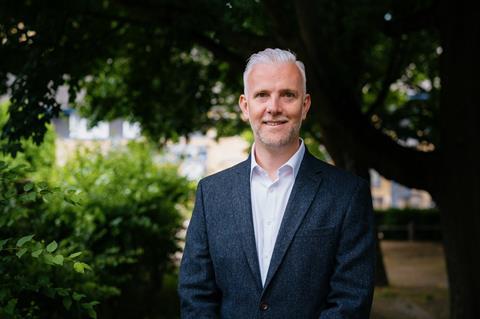Andy Hulme calls for re-introduction of rent convergence as development falls to decade lows
Just 150 home starts were registered by housing associations in the second quarter of 2024, official figures show.

Data published by the Ministry of Housing, Communities and Local Government show starts have plummeted in the capital. The total of 150 for housing associations compares to 1,890 in the same period last year.
Housing associations have built 890 homes in the first half of 2024, which is the lowest figure since records began in 1990. The first half of 2024 has seen the lowest number of housing starts registered by housing associations in London since records began in 1990.
Overall starts in London totalled 4,510 for the first half, also the lowest figure on record.
The figures prompted Andy Hulme, chief executive of 44,000-home Hyde Group to call on government to “step up” and warned the drop in starts will contribute to more people becoming homeless.
He said: “At a time when we have record numbers of homeless children living in temporary accommodation it’s very worrying, but sadly not surprising, to see a record fall in the number of new homes being started. It is also important to recognise that the drop in starts by housing associations in London is particularly acute at a time when the need for affordable housing in the capital has never been greater.”
He said: “We need the government to step up to help us tackle the growing national housing crisis.”
Hulme said an expected long-term rent settlement will be welcome but said “returning to a standard formula of annual increases of CPI+1% won’t be sufficient to meet the challenges the sector faces.”
He said a rent settlement must also include the reintroduction of rent convergence rules.
He said: “More than half the homes managed by the largest housing associations in London are financially unsustainable over the long-term because rents do not cover the cost of maintaining and investing in these homes.”
Historically, the level of social housing rent residents pay to councils and housing associations has varied depending on when and where their home was built. To counter this, from 2002, the government allowed cheaper rents to increase by the Retail Prices Index (RPI) + 0.5% and a maximum of an additional £2 per week, every year. But this policy was scrapped in 2015.
>>See also: ‘The figures on starts are terrifying’. What’s really happening to the Affordable Homes Programme
>>See also: What does the collapse in section 106 demand mean for housing delivery?
The G15 group of housing associations has estimated scrapping rent convergence has cost the sector £2bn and put 300,000 homes at risk of being unsustainable.
Hulme said: “A ten-year, index-linked settlement for social rents must also include a reintroduction of rent convergence. More than half the homes managed by the largest housing associations in London are financially unsustainable over the long-term because rents do not cover the cost of maintaining and investing in these homes.”
Across England as a whole, there were 13,110 affordable housing starts in the first six months of the year, down on the average of 20,430 for the first six months in the three years since the pandemic. Across all tenures there were 49,180 starts in England in the first six months of the year, the lowest total since 2009.











No comments yet